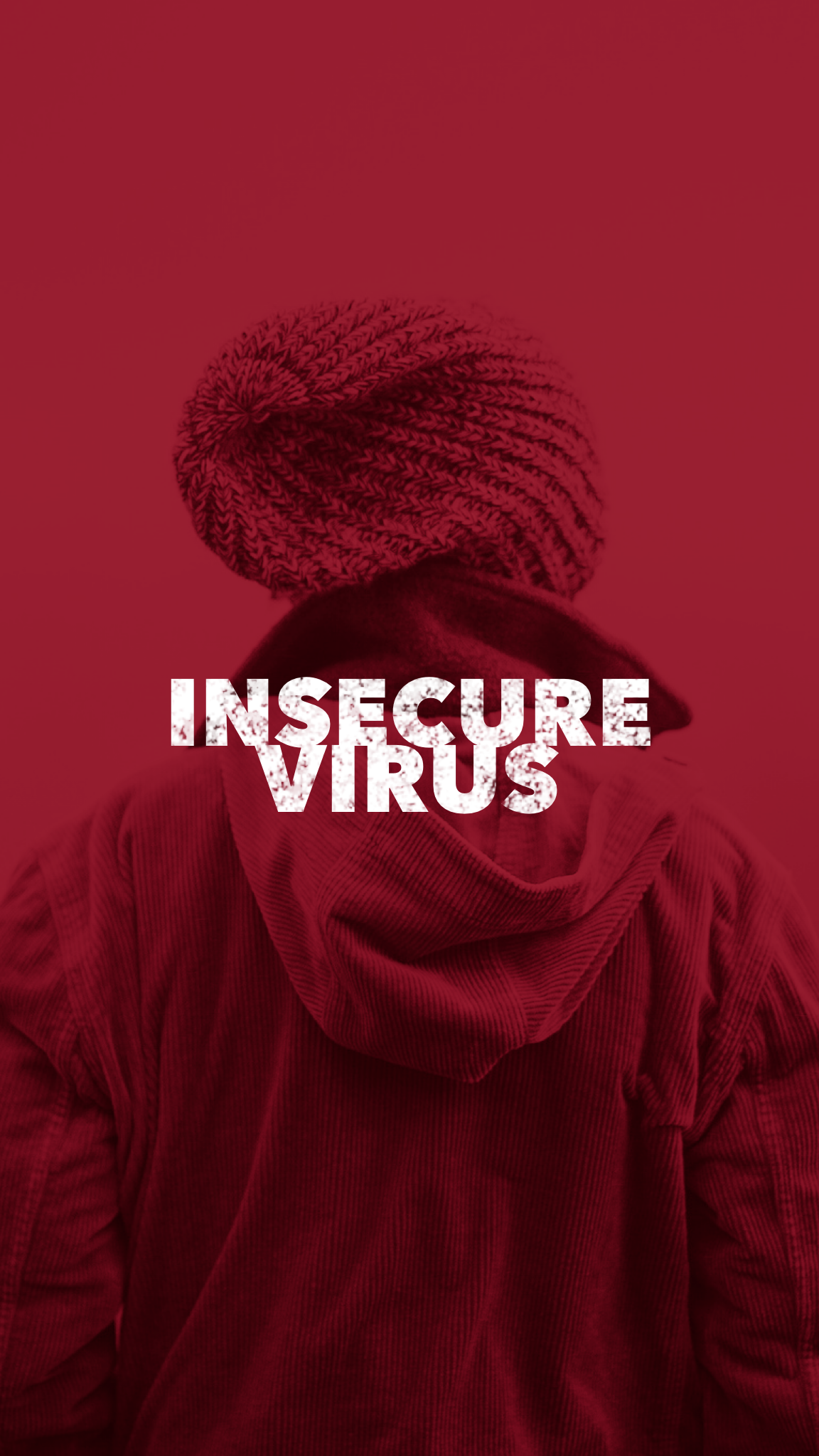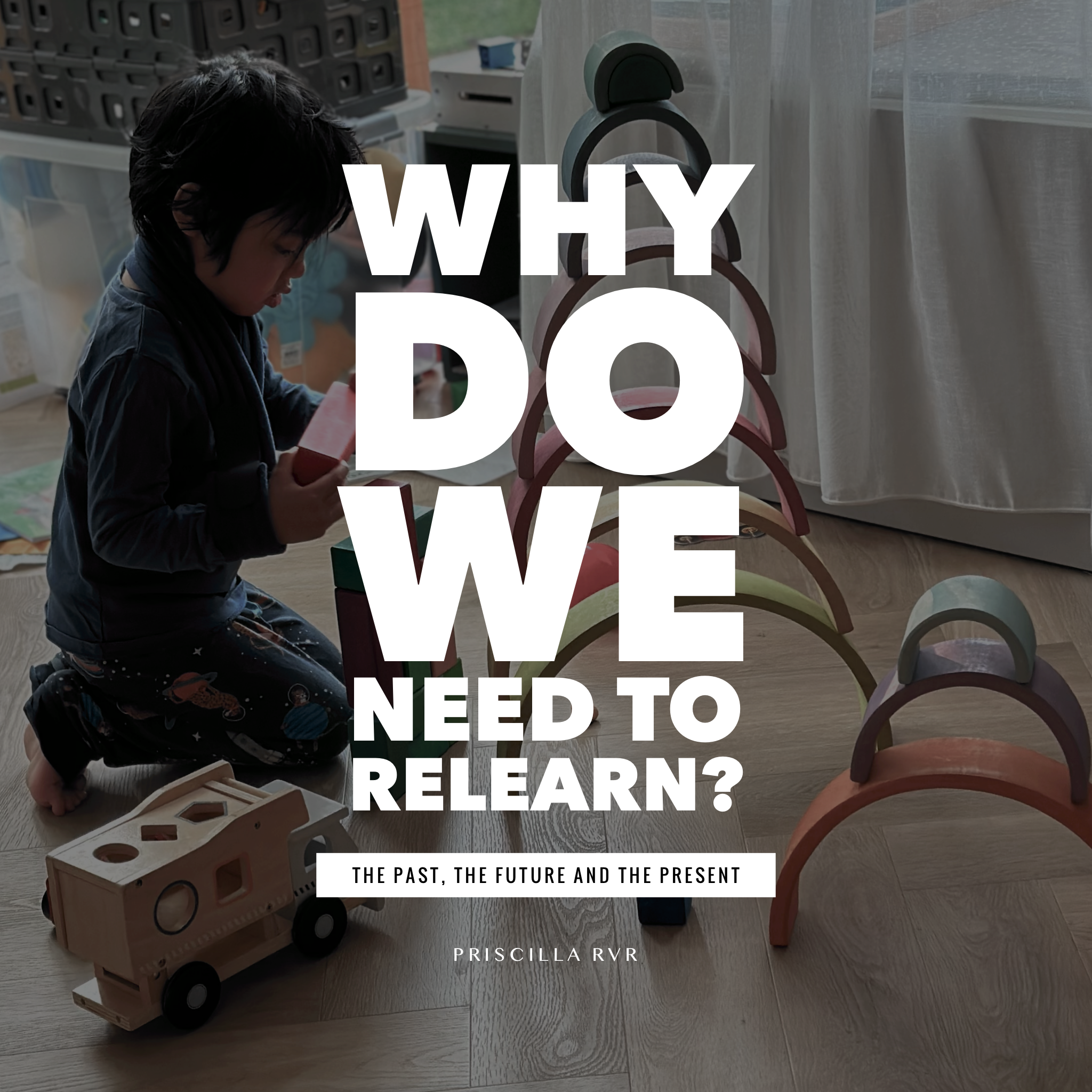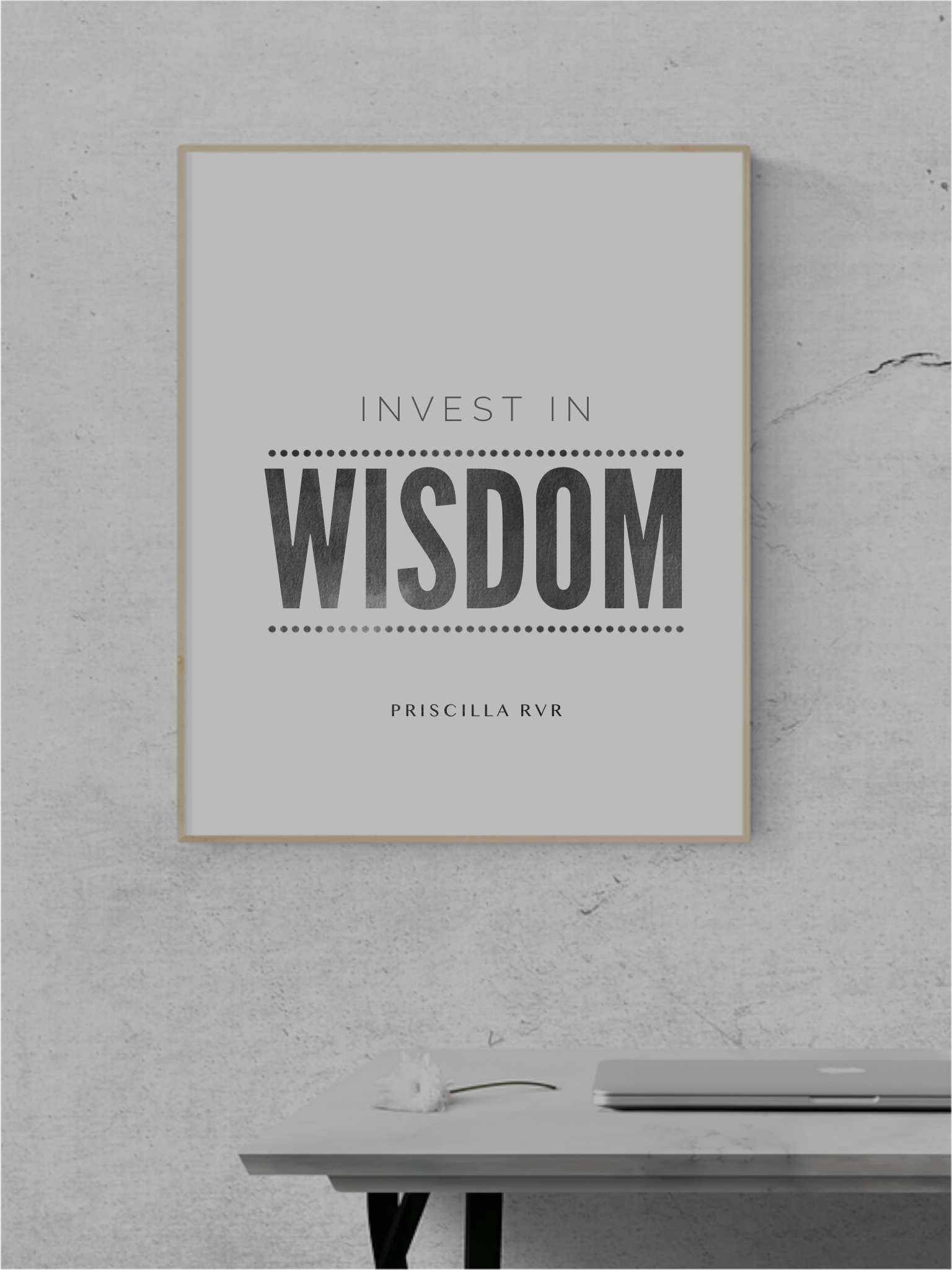A lifetime battle: Fight Against The Insecure Virus.
Batling against the insecure virus is a lifetime battle. You may win many times in your life. But the virus is always hanging around, waiting to slip away when the wall protection is not well guarded. The enemy is intangible. You can't see who's coming with the virus.
When an insecure virus comes back and tries to torment you down, you need to fight it even when you don't feel about fighting it back. It's a daily-lifetime decision to fight for it.
'Stay alert! Watch out for your great enemy, the devil. He prowls around like a roaring lion, looking for someone to devour. '1 Peter 5:8
Sometimes you feel down, and the insecurity says that 'you are not good enough,' fight it! I know sometimes we are tired and don't feel encouraged anymore.
You can't fight this virus only with pray and wish a miracle comes that your soul instantly healed. But, unfortunately, it doesn't work like that, my friends. I think God wants to work together when it comes to the soul. So he fights along aside with you. He gives us strength and wisdom to fight it, but you need to do your homework. No shortcut and instant miracle. Why? Because our soul can't be self-healed without you consciously wanting to be healed. The problem is that often we don't realize that we are insecure.
Why do I say insecure like a virus?
I started to write a series about the insecure virus in mid-February 2020 before we were officially under the pandemic and the first lockdown in the Netherland. I found many similarities between how insecurity works and infected people like viruses.
Insecurity is like the influenza virus. You can be healed from it, but you can get sick again. This virus attacks your mind and soul in the subconscious and unconscious levels. And it's also highly contagious. So if you are infected, it means you are also a carrier - who can spread out the sickness to other people. In other words, insecure people unconsciously try to make others feel insecure. Be aware.
The problem is that most people don't seem aware that they are sick or insecure. Other people can see the symptom. When people tell them, they might deny it because they may not feel it or won't admit it (yet).
Question:
Do you want to hear this kind of feedback or input in your life? Do you think they are negative, critical, or hate you?!
We can't be healed if we don't acknowledge. The truth will set you free.
Do you want to hear the truth?
What are the symptoms?
The main symptom of an insecure person:
You have trouble fully trusting yourself and other people.
You lost your confidence.
You feel that you are not enough.
Covered with fear and anxiety.
Feel uncertain and unsafe.
You accept too much into what other people say.
You need reassurance and validation from others.
All the symptoms revolve around a trust issue and identity. How you see yourself or how you trust others. And, of course, that could lead to how you see God.
When you are infected: You are not yourself. You doubt yourself (and others). This is not you! In the acute situation, you didn't even recognize yourself anymore. It's like a different person. You forgot your good quality or even your achievement.
We need other people to help us see the insecurity. To acknowledge what's going on and get healed. We need mirrors to see the things we cannot see by ourselves.
The manifestation of this thought could be variant depending on the area of life, such as in a relationship, self-image, leadership, workplace, etc. The effect is also wildly ranged from mild to destructive.
Why do we need to fight it back so hard???
The consequences of insecurity are more dangerous than you can imagine if we are not healed.
THE INSIDIOUS EFFECT
Insidious,' which means proceeding gradually, subtlely, but with very harmful effects. It's a slow-long process, but the impact is damaging. Because of that, people often didn't see it coming as a destructive outcome.
ACROSS GENERATIONS
No matter who you are. Are you in a high-rank leadership position or not? As long as you interact with other people, you could unconsciously spread the insecurity to others, and they accept that as the usual norm. So they adopt that based on insecure behavior and passing down to the next generations. But that's true if you are in a high-rank position or you are a parent, you have the most significant possibility to spread the insecurity.
A story in Amy C. Edmondson's book 'The fearless organization' captures my attention that explains the dangerous impact of insecurity beyond the generations. She is a researcher and professor at Harvard Business School. The story is about the scandal of Volk Wagen diesel gate 2015 - how could the largest automaker cheat the result of the gas emission? They have impressive sales. They won the Green Car of the Year at the 2008 Los Angeles Auto Show, but the clean diesel they are proud of is just a hoax. They did it for almost ten years without being caught. Not until 2013, an international non-profit group partnered with West Virginia University and California environmental became interested in how diesel engines work. This case became a criminal investigation in the United States and The European Union.
So what is the root cause? She explains there's an insidious culture of fear in VW. She used the words' insidious,' which means proceeding gradually, subtlely, but with very harmful effects. It's a slow-long process, but the impact is damaging. Because of that, people often didn't see it coming as a destructive outcome.
So who caused all of this? Why do they use the culture of fear in the workplace? The CEO, Martin Winterkorn, is a good candidate as the villain. And yes, he steps down after the scandal, taking the 'full responsibility but denying 'wrongdoing.' He denied it! He is an ambitious man who wants to triple the company's US sales within ten years. But the US market has a strict emissions test that is quite impossible to pass. The idea to create a trick to pass the test is not from him. But he assembles the fear and intimidating culture that makes people do whatever he wants. Interesting right?
This case has not only one master villain. It turned out this scandal's roots begin in such a long history. So, bear with me.
Martin Winterkorn didn't create this culture based on his idea. Instead, he learned his leadership style from his mentor: Ferdinand Piech, VW's former chairman CEO. So he is just showing off all he has comprehended as a Piech protegee. It worked in Piech's era, and he continued to use it under his leadership.
Bob Lutz, the Chrysler executive, suspected Piech was the root cause because Ferdinand Piech initiated the reign of terror and culture by fear and intimidation. But the, Piech's management believes that he learn this from his mentor - his grandfather, Ferdinand Porsche. And if you ask from whom, did Porsche learn all of this? Porsche learn from the legendary automaker Henry Ford. In the mid-1930s, Porsche knew personally and studied how Henry Ford did the golden age of manufacturing. The era when fear and intimidation were a proven culture to create profit and motivate the speed and accuracy of the workers. As a result, Porsche becomes a big fan of Ford.
When I read this story, it blew my mind. Okay, let me recap once more. This scandal's root cause comes from Henry Ford - Ferdinand Porsche - Ferdinand Piech, and Martin Winterkorn. So four master villains from three different generations of top leaders, from 1930 to 2015, means 85 years later! What on earth!
Unfortunately, Amy's explanation stops until Ford. But it makes me curious, and I want to know more about Henry Ford. Why did Henry Ford do such things? Did he learn from his mentor? or what?
So I dive into his biography. I read one old blue book, and I summarized this, but I forgot to write the book's name. I am still trying to find this book again. The style of this book is like Harvard business book style; it contains an in-depth interview of several key people and covers several aspects of Henry Ford's life. When most books focus on the bright side of Ford's, this book reveals the dark side in detail, especially in his late life.
SELF SABOTAGE
You may guess what the cause of Henry Ford is. He didn't learn this culture from his mentor. But it all comes from his insecurity. After all his achievements as an innovator in the automaker and the top dominating sales, he becomes insecure. How could it be?
In that time, the auto competition becomes more challenging. General Motor can read better what the customer wants. So GM grows significantly, catching up with Ford's market share.
His engineer's team and son try to convince him about the innovation in car engines, but he rejects all the ideas for several years.
He was known as someone who was willing to double the salaries and introduced a five-day workweek became someone who hated and disdained the labor unions (look them as unworthy). He treats his labor with violence. Ford hired Harry Bennett as a service department to beat the workers. The culture of fear worked so well to increase production and sales. But it costs so much damage.
When things got rougher, the union's labor kept pushing. As a result, Ford threatened to shut down his entire business. And he was almost dangerously close to doing this. His insecurity created self-sabotaging, and he unconsciously wanted to sabotage his legacy.
Luckily his wife intervein. She told him that she would leave him if he destroyed the family business. So she brought him back to his senses.
The book didn't use 'insecure' to describe Henry Ford, but you can find many symptoms in his late life. Somehow, he forgets all the good qualities and why he does what he does.
CREATE UNHEALTHY - BASED ON INSECURE CULTURE
What do we learn?
From one insecure leader, create a toxic culture where people think this is the way to achieve a goal. And then he inspired other leaders to do the same. Because he believes this works well. And he passed on this culture to their mentee. Yet, none of them check that the culture is based on insecurity and outdated beliefs.
Just because it works, it doesn't mean it was the right thing to do.
Don't become so well-adjusted to your culture that you fit into it without even thinking. 'Romans 12:1-2
HOLY MANIPULATION
If you notice that your new workplace has unhealthy culture, you can leave them and find another job. Maybe you will wait for several months first until you secure the next one.
If you notice that your friends are so toxic and insecure, you could take a 'social distancing' and be alert that they are not themselves.
But what happened when the insecure virus was spread out at home and in church? This place is the opposite of the culture of fear. Instead, it could be the culture of 'holy manipulation.' And the effect is even more damaging than what Ford did.
When the leader - someone that you highly respected didn't give you a chance and said that you are not good enough (yet). You will probably accept their words as truth that you are not good enough. The leader in the church may not be using violence or harsh word but modest, polite 'holy' excuses.
But then you see, many of your friends also were treated the same. Many suffered thinking they were not good enough and doubted God had prepared for them. And you realize that it was never about you, but maybe the leader was insecure. It's because he doesn't want someone else to take the platform or the fame from him. Or because that's how his mentor teaches him to do like this. To not easily give trust and platform to the new people. Don't get me wrong. It's okay to be careful, but it doesn't mean permitting you to manipulate people.
How could you prove it? You see that there were only the same 'circle' of people on the platform year by year, even though there were so many people you could train and empower. You see, there's an unspoken culture to hold people back. But no hard evidence.
Sometimes, it is hard to be candor at church, especially if they don't have an open, safe place culture for the team to speak up. But, how many organizations still hold on to the outdated belief that it means disrespecting the leader if you speak the truth?
If you came from a healthy - empowering people church culture, you would easily recognize when trust issues happen in the new place. Therefore, you can distinguish and decide whether you want to stay and help change the culture or leave and find a better place that suits you.
I think the real danger is to the people who are grown up in those cultures. They think that 'this is the way' of treating people. So they follow what the leader said and do without even checking or daring to hold them accountable. They didn't even know that this culture is based on insecure leaders?
How many Martin Winterkorn in the church world or in the generations to come? Who believed that there was nothing wrong with what he did.
How many insecure generations were born under the insecure leader?
The ANTIDOTE (for the culture)
If you want to build people, to create empowering people's culture, you need to trust people. You need to give them trust first and give them room to make mistakes. Not all the way around. I know that the common thing you heard all this time is 'you need to earn the trust.' Sadly this is an old and outdated perspective that caused many damaging cultures. When people have to earn trust, it could be a slippery road to 'lick the ass' and 'yes man' culture. People craved to be accepted and trusted.
I have two kids. As a parent, I can't ask my baby to prove that she is worthy of my trust first. So I'm the one who needs to give my trust first. How deceitful my kids will be if they need to earn my trust or my love all their life. If you can see the wrong results in the scale of a little family, why do people implement it in the organization's culture? Remember how the Asian outdated parenting style? Look at the results. How many kids suffer because the parents rarely give a compliment? Somehow unconsciously insecure, they become craving for approval and recognition.
Think of this perspective from Craig Groeschel:
'Trust is given, and mistrust is earned' - Craig Groschel.
You can only give what you have. If you are insecure, you will raise an insecure leader too. As a leader, parents, if you do not treat the insecure virus and allow them to grow in your mind, they will ruin you. Therefore, we must be vigilant about what we let in to win this war.
Christine Caine and Craig Groschel share their insight about leading through insecurity in the podcast. They are both strict about what they consume and the voice they listen to. They also continuously fight the thoughts like 'I'm not good enough or 'I can't do this.' So, you are not alone. We are in this fight together.
A healthy culture starts with a healthy leader, you and me.
The Cure (personal)
When infected with an insecure virus, we can't just "rest" and wait until the insecurity disappears. Time will not heal you. We could be insecure in months, even in years! We don't heal by ourselves. The longer we are sick, the more people could get infected. The insecure virus is contagious. We need to fight it! Beat it! Take charge of our life back.
Here is some step to cure ourselves of the insecurity.
Recognition is the first step toward healing.
Be open - be vulnerable. Find some help from our circle of friends. Reach out to people. It's okay not to be open to everyone—just selected people. Ask professional help if necessary. The fact that we are open up to our struggle is a sign of strength.
Don't entertain the insecurities thoughts. Get a healthy distraction. Change our mindset and focus.
Remember who you are. Remember all the good qualities that you have. Remember all your achievement. Remember all God's goodness in your life. Look how far God has brought you here. Remember all God's promises, and He is faithful. God has more for your life.
Celebrate all your good qualities. Just because you are feeling insecure doesn't mean you should be. Just because you are infected, it doesn't mean you are not awesome!
Confront the issue - our soul needs confessions. Start to open up to the people we can trust about what's bothering us. This is open up level 2. Say the brutal honesty about what's going on under the unconsciousness. Bring that up to the conscious level. Sometimes it looks like vomit like a volcano exploding, and it's okay. Sometimes we directly feel better after vomit, right? The same with our soul. Often you will find what your trigger is.
Speak healing and blessing over your mental health. Write it down as a reminder of who you really are. Your words create your world.
Surround yourself with the good-godly community. Hold yourself accountable.
Take a moment to process everything. The healing process is not just in a day. It takes time.
Remember, you are not alone. This, too, shall pass. Don't give up.
A Fight to the Finish
A reminder from Apostle Paul:
'This is no weekend war that we’ll walk away from and forget about in a couple of hours. This is for keeps, a life-or-death fight to the finish against the Devil and all his angels.
13-18Be prepared. You’re up against far more than you can handle on your own. Take all the help you can get, every weapon God has issued, so that when it’s all over but the shouting you’ll still be on your feet. Truth, righteousness, peace, faith, and salvation are more than words. Learn how to apply them ' Ephesians 6:10-18 MSG
Come on, fighter!!! Beat the insecurities! You are stronger than you know. You are loved and too precious to be defeated by this ugly virus.
About the writer

































